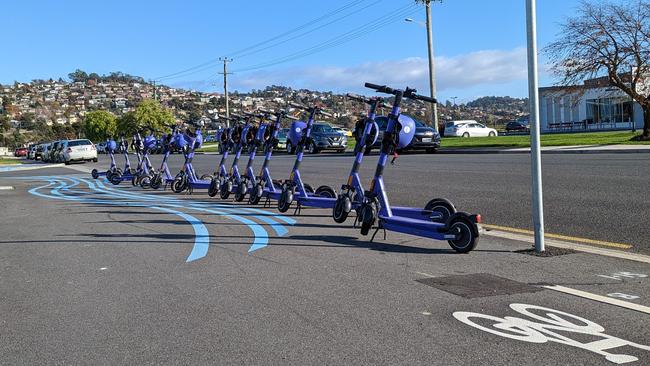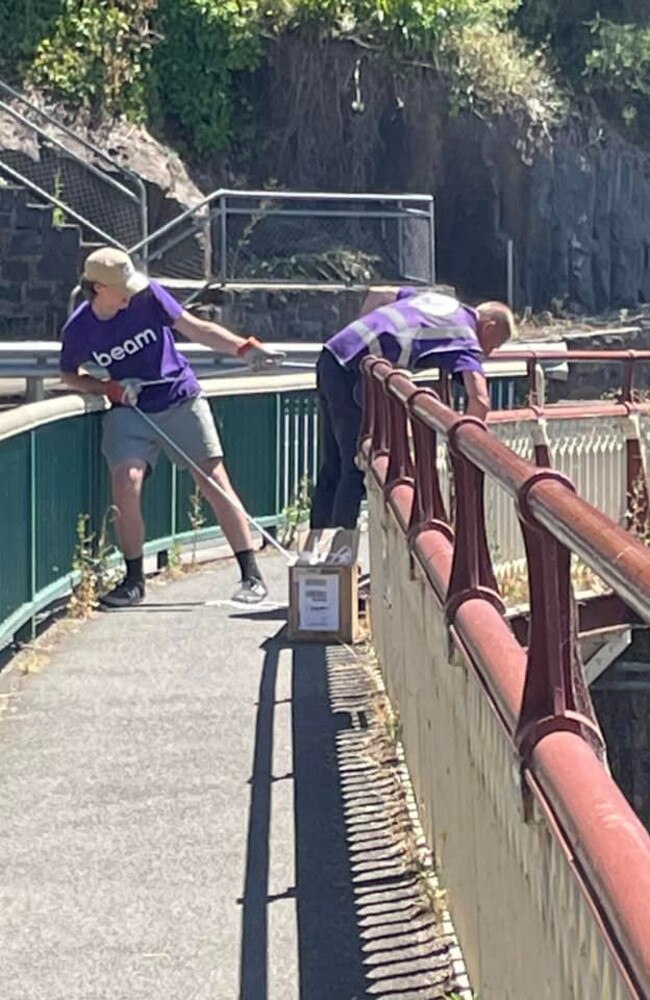Launceston e-scooters: Beam to be granted permanent licence
A Tasmanian city council has voted to permanently host an e-scooter operator as part of its transport mix. Here are the conditions that will have to be fulfilled as part of the approval.

Launceston
Don't miss out on the headlines from Launceston. Followed categories will be added to My News.
The City of Launceston will install designated bays for Beam Mobility e-scooters and charge the company an annual licensing fee commencing at $7000 a year following Hobart’s lead in granting an ongoing permit for the business to operate.
Beam Pty Ltd is the last remaining e-scooter operator in Launceston, after competitor Neuron Mobility pulled the plug on its trial in December last year.
On Thursday, council at its general meeting agreed to permanently allow Beam e-scooters, although the company’s operations would be reviewed annually and council may cancel the permit at any time.
The key change with the granting of a permanent permit would be the imposition of an annual licensing fee, to commence at $7000 p.a. in 2023–24, which has been “calculated to allow recovery of costs incurred by the council in the provision of e-scooter parking space infrastructure and staff time in administering the permitted activity,” a report to council stated.
“The permit will need to be renewed on a yearly basis, in accordance with the legislative
requirements,” the report said.
The provision of designated bays and other infrastructure would be staged.
“It is important to note that some recommendations, such as designated bays, require
infrastructure improvements and the council’s resources to plan and implement, these
recommendations will be implemented over time in a staged approach, aligning with the
pace of e-scooter deployment and operational growth,” the report said.
Onerous conditions will be imposed on Beam as part of its permit.
The e-scooters’ operations would be confined initially to the following suburbs: Launceston, South Launceston, East Launceston, Newstead, West Launceston, Invermay, Mowbray, Mayfield and Newnham.
Beam will be bound by level of service requirements, such as righting toppled e-scooters within three hours, moving them within one hour if they are impeding property access or blocking pedestrian kerb ramps, and retrieving them within 30 minutes if they are dangerously located, such as hanging from a tree or on a median strip.

Beam will be made to undertake public safety campaigns; maintain public liability insurance with cover of at least $20m per claim; keep the e-scooters in a “well maintained condition”; and provide monthly and annual reports to council detailing “incidents, usage (total trips, kilometres travelled, average number of deployed [e-scooters]), and performance against level of service requirements”.
Further, “Council may decide to impose restrictive parking requirements for [e-scooters] in high activity areas.”
“Where the operator has been given notice by council that such a restrictive parking area has been implemented, the operator must apply geofencing and other technologies to ensure that its users within a restrictive parking area are unable to end their ride except in a physically demarcated [e-scooter] parking space,” the conditions of permit state.
A Beam spokeswoman said the company was pleased with the outcome and intended on abiding by all conditions.
She said the current 300 e-scooters in Launceston is “currently well matched to demand”.
Beam operates a fleet of 100 e-scooters in Burnie and 300 in Hobart. In February, Hobart City Council voted to grant Beam an ongoing licence.





